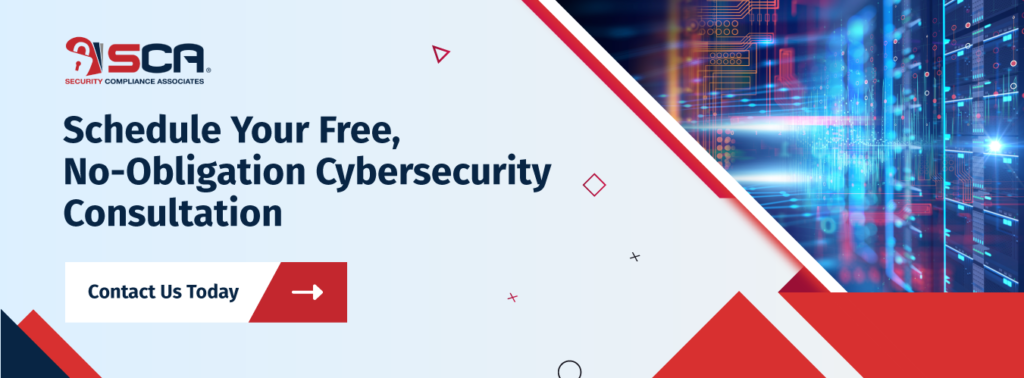
- March 7, 2023
- Brian Fischer
- 542 Views
- 0 Likes
- Blog, Compliance, ESO Services
5 Tips to Prepare for Your Next HIPAA Audit
If your organization works in the healthcare industry in any capacity, you’re most likely aware of the Health Insurance Portability and Accountability Act of 1996, more commonly known as HIPAA. The purpose of the act is to protect sensitive information from being disclosed without a person’s explicit knowledge and consent.
Certain individuals and organizations are subject to the privacy rule. They include healthcare providers, healthcare plan providers, healthcare clearinghouses, and any business associates that may use or disclose individually identifiable health information (for claims processing, billing, or data analysis, for example). There are always exceptions to the rule, but we advise you to err on the side of caution and protect all data unless explicitly required to release it by law.
SCA helps clients more specifically when it comes to a subset of information covered by the privacy rule: electronic protected health information (e-PHI). That means protecting the sensitive personal information that is housed online or in the cloud.
When it comes to a HIPAA audit, all entities covered by the rule must be able to provide proof of confidentiality, integrity, and availability of e-PHI; safeguards against any potential security threats; protection against any impermissible uses or disclosures, and certify all workforce compliance. In this article, we’ll give you some practical tips for ensuring you’re ready should you be faced with an audit this year. Start planning now to ensure you won’t get hit with any fines!
Ensure Your Employees Are Properly Trained
As we’ve discussed in many of our articles, employee knowledge and empowerment is your first line of cybersecurity protection. So many breaches occur due to human error, and usually, they are not on purpose. To prepare for your HIPAA compliance audit, you’ll need to have a cybersecurity training program firmly established and be able to recall data on each employee’s cybersecurity training.
The United States Health and Human Services (HHS) website provides some resources aimed at helping organizations implement HIPAA training, although there is no exact official training protocol. Healthit.gov provides entities with a Guide to the Privacy and Security of Electronic Health Information which is a great place to start your research. Of course, the privacy language can become a little convoluted, so it may make sense to reach out to a HIPAA cybersecurity expert team to ensure your team is up to speed.
Related Content: 7 Pro Tips from a Cybersecurity Consulting Firm for Awareness Month
Run A Risk Assessment
Running a risk assessment is absolutely critical, even if not HIPAA-related! Your organization should be running ongoing risk probing and testing to identify any potential vulnerabilities to your network be it online or on securely on-premises. We’ve already written too much about major cybersecurity breaches and how they continue to increase in quantity and sophistication each year.
HHS provides a Security Risk Assessment (SRA) tool that can help service providers with limited resources identify where their cybersecurity and personal data may be compromised or at risk. The tool must be downloaded from the government website and comes in tandem with a dedicated user guide. However, we strongly recommend working with a professional cybersecurity firm to cover all your bases. The cybercrime landscape is increasingly murky and you don’t want to get caught up in a data leak due to limited information!
Identify Your Privacy and Security Officer(s)
That is why we think you should designate a dedicated Privacy and Security Officer. This person could be in an in-house role, or you could outsource the job to a dedicated firm. It really depends on your budgeting considerations, the size, and the complexity of the data your organization is using. In some cases, this role may require two separate people: a Privacy Officer and an Information Security Officer.
This role (or roles) involves developing your organization’s practices, policies, and procedures surrounding HIPAA compliance. These are the people who will monitor staff training, and teach others by encouraging a culture that fits within HIPAA privacy rules. They should be managers within the organization and have the authority to sanction employees that are acting in HIPAA non-compliance.
Systematically Review Your Compliance Procedures
When it comes to cybersecurity, sometimes we like to repeat ourselves. You must engage in ongoing systematic cybersecurity reviews! Cybersecurity is not a set-it-and-forget-it policy implementation. The threats and challenges are constantly changing and you’ll need to have a team of experts you can trust and rely on to patch network limitations and ensure your sensitive data is secure.
Develop a Disaster Recovery Plan
A comprehensive disaster recovery plan is essential to any organization’s cybersecurity infrastructure, especially in the context of HIPAA compliance. In the event of a cyberattack, incident, or data breach, having a well-defined plan in place can help minimize the potential damage and quickly restore operations.
First and foremost, organizations should define what constitutes a “disaster” or “cybersecurity incident” in order to effectively respond. This can include anything from a large-scale attack to an accidental data breach and should be tailored to each organization’s needs. Once these definitions are established, organizations should create policies detailing how they will handle such events. This includes actions that must be taken to protect data and systems, as well as reporting procedures for when an incident
A HIPAA disaster recovery plan is critical for compliance and contingency planning to recuperate compromised data as needed. If disaster strikes and access to systems containing patients’ protected health information is blocked, the HIPAA disaster recovery plan should immediately be implemented. The disaster recovery plan should be implemented by the designated Privacy and Security Officer(s) in conjunction with any outsourced cybersecurity teams your organization is working with.
SCA has a proven system to evaluate your cybersecurity level when it comes to responding to HIPAA compliance requests. We’re here to help you focus on your patients and customers while assuring you are covered when it comes to that next HIPAA audit.


